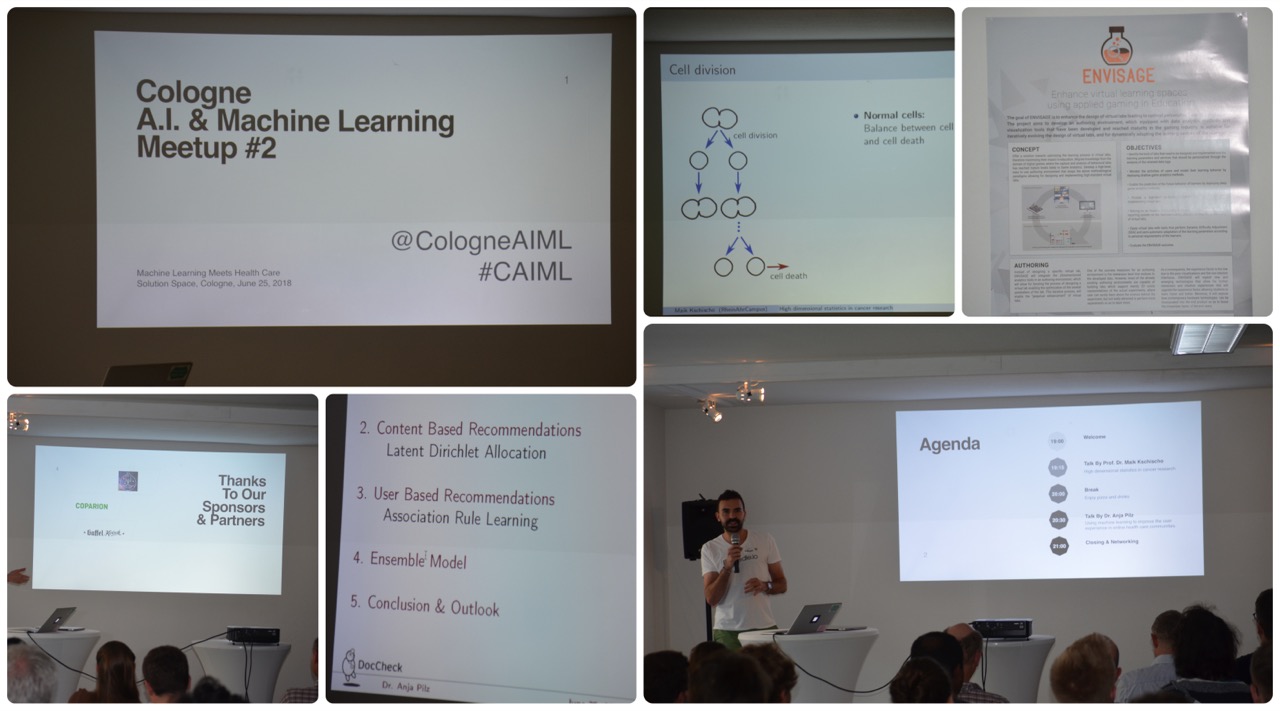CAIML #2
In our second event, we will focus on machine learning applications in the health care domain. We welcome you again to the Solution Space to hear exciting talks by two experts in AI and machine learning. Dr. Anja Pilz and Prof. Dr. Maik Kschischo will join us, and tell us more about their work on algorithms running on data from the health care domain (see below for more information). Of course, we will again reserve plenty of time for networking.
Join us to learn, network, discuss trends and innovations in the AI space, and exchange knowledge with AI experts, machine learning practitioners, and data scientists. A big thank you to our sponsors and event partners coparion and Gaffel for supporting this meetup.
Agenda
19:00 - Welcome
19:15 - Talk by Prof. Dr. Maik Kschischo
20:00 - Break with drinks 🍻 and pizza 🍕 brought to you by coparion and Gaffel
20:30 - Talk by Dr. Anja Pilz
21:00 - Closing & Networking
Talks
Talk 1: “High dimensional statistics in cancer research” by Prof. Dr. Maik Kschischo
Cancer remains one of the most complex and life threatening diseases. An important part of modern cancer and other biomedical research is the integrative analysis of molecular and clinical data. Typically, these data are big in the wrong dimension: There are many more features than samples. After a brief introduction to the necessary biological background, we will focus on some methods of high dimensional statistics, which are frequently used in cancer research and other high dimensional settings. In the discussion, we might also touch on the important problem of causal inference from observational data, which is a current direction of intensive research.
Talk 2: “Using machine learning to improve the user experience in online health care communities” by Dr. Anja Pilz
DocCheck is a medical community for health care professionals. Doctors, pharmacists, students and other healthcare professionals use this platform for online learning, to exchange with peers and to actively contribute their expertise. They seek detailed information in the extensive medicine wiki DocCheck Flexikon, read the bi-weekly edition of DocCheck News, share and discuss medical images in the image archive DocCheck Pictures, or buy medical products and supplies in the online shop. Each of our user groups has different intentions and interests: A student might want to learn anatomical topics in some order and a cardiologist is usually interested in different news than a pharmacist. The ultimate goal is to find the most relevant and interesting assets for each target group to enable targeted mailing and feed personalization. At this point, to improve user experience, we provide related content across different media types in a fully automated fashion. For instance starting from a medical text about a specific disease, we want to offer the most relevant related articles but also news, pictures, videos or even products from the online shop. In this talk, we will focus on the websites with the highest click frequency: the medicine wiki Flexikon. We will show how we automatically find related assets using both content based models as well as models derived from user behaviour. Both approaches are backed by machine learning techniques, namely Latent Dirichlet Allocation and Association Rule Learning. We will give some technical details and share insights on the practical aspects and pitfalls.
